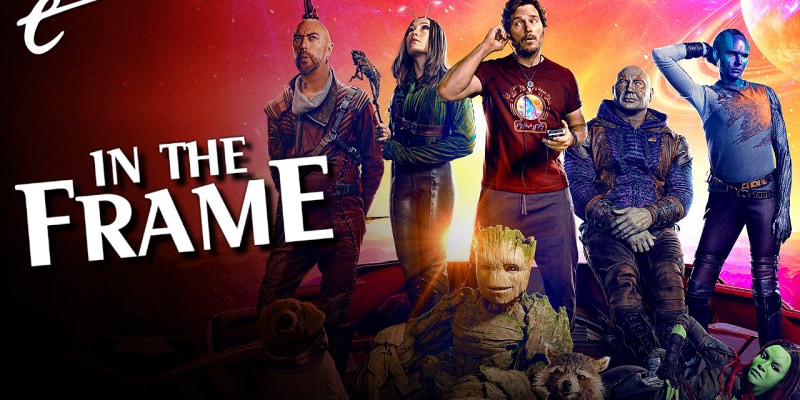This article contains spoilers for Guardians of the Galaxy Vol. 3 in its discussion of James Gunn’s filmmaking relationship with Disney. If you don’t want any spoilers, bookmark this page and check back soon!
Guardians of the Galaxy Vol. 3 is a breakup movie, in both a literal and a metaphorical sense.
Much of the movie explores the relationship between Peter Quill (Chris Pratt) and Gamora (Zoe Saldaña). The two courted in Guardians of the Galaxy and Guardians of the Galaxy Vol. 2, but that relationship was cut short when Gamora’s father, Thanos (Josh Brolin), threw her to her death in Avengers: Infinity War. An alternate version of Gamora was pulled through time in Avengers: Endgame. However, arriving from a point before meeting Peter, she doesn’t remember their relationship.
By the time Vol. 3 begins, Peter has descended into alcoholism. He is barely functional. His friends understand that he is struggling to come to terms with the fact that the woman he loved has been replaced by a complete stranger. When events conspire to reunite Peter and Gamora, the two navigate their complicated relationship. However, Vol. 3 is not a love story. While the pair come to an understanding of one another, they do not reunite. The movie ends with the pair parting ways.
A similar drama played out behind the scenes. Following a campaign orchestrated by bad-faith actors, Gunn was actually fired from Vol. 3 in July 2018. He would eventually be rehired by Disney in March 2019. By that point, Gunn had moved on. He had agreed to direct The Suicide Squad for Warner Bros. His work at that rival studio would lead Warners to appoint Gunn (and Peter Safran) as the steward of the company’s DC slate. As such, Gunn’s relationship with Marvel was over.
Guardians of the Galaxy Vol. 3 is a movie about the complicated relationship between an artist like Gunn and a studio like Disney. Although Gunn reportedly completed early drafts of the script before his initial departure from the project, he has admitted to tweaking the film since his return. In November 2020, stating the script was finished, he explained that “very little” had changed. As recently as August 2021, Gunn admitted he was still “playing around with little things to make the script better.”
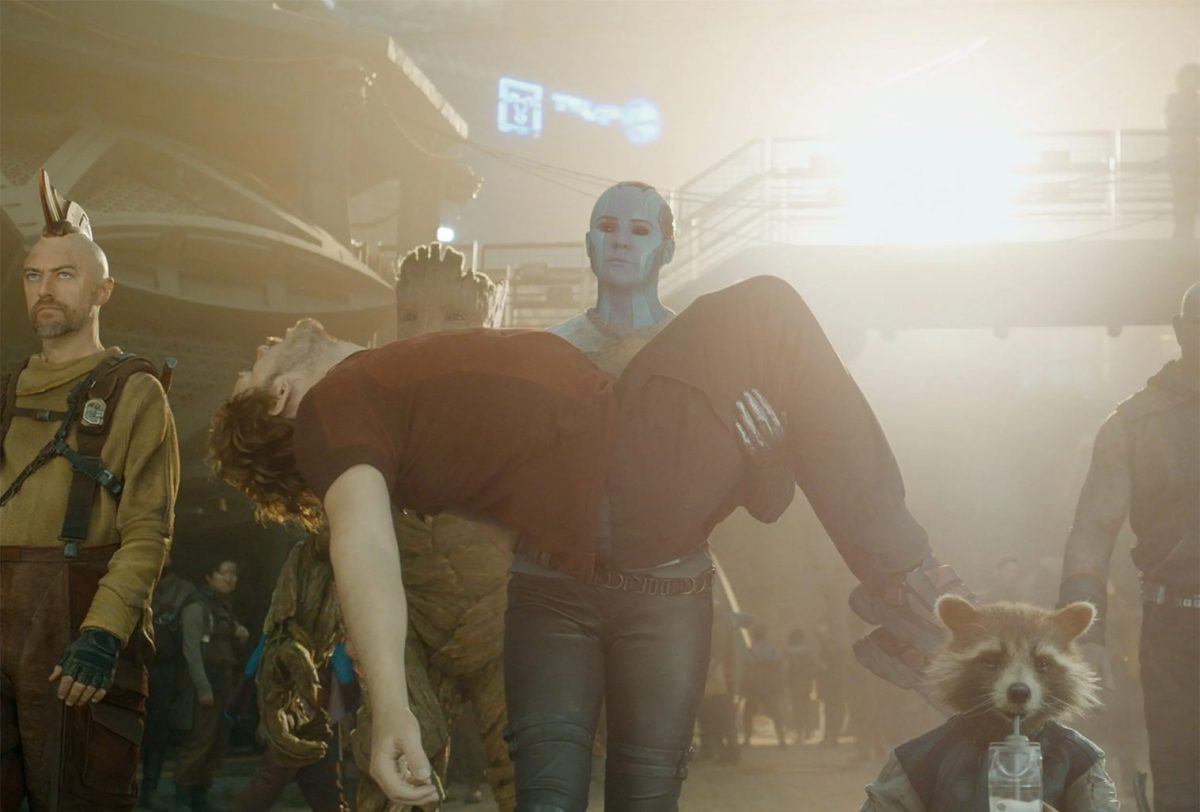
Vol. 3 opens with an attack upon the Guardians by Adam Warlock (Will Poulter). During that attack, Rocket (Bradley Cooper, Sean Gunn) is brutally injured. The surviving members of the team discover that the advanced technology in Rocket prevents them from treating him. His genetic code is “proprietary,” belonging to a sinister galactic corporation. The company is run by the High Evolutionary (Chukwudi Iwuji), the evil scientist who created Rocket.
At its core, Vol. 3 is about the Guardians working together to rescue their beloved space friend from the clutches of a monstrous corporation. The High Evolutionary sees Rocket as a piece of his intellectual property, something to be harnessed and exploited. In contrast, the Guardians see Rocket as an individual, someone to be protected and sheltered. Vol. 3 is a tug of war over the question of what Rocket is supposed to be: a product or a person.
The subtext isn’t subtle. The High Evolutionary often seems like a stand-in for Disney, both the company and the man. The High Evolutionary’s experiments with anthropomorphic talking animals like Lylla the Otter (Linda Cardellini), Teefs the Walrus (Asim Chaudhry), and Floor the Rabbit (Mikaela Hoover), and his continued attempts to assert ownership of them as intellectual property, recall Disney’s aggressive protection of its own animal character trademarks even as they approach the public domain.
Guardians of the Galaxy Vol. 3 also introduces the comic book concept of “Counter-Earth,” the planet of anthropomorphic animals created by the High Evolutionary. Much like Walt Disney himself, the High Evolutionary is a eugenicist; steeped in 1950s iconography, “Counter-Earth” evokes Walt Disney’s original plans for Epcot as a planned community. Parked within the planet itself, one corner of the High Evolutionary’s spaceship looms large over Counter-Earth like Cinderella’s Castle over Disneyland. The High Evolutionary conjures entire worlds into being.
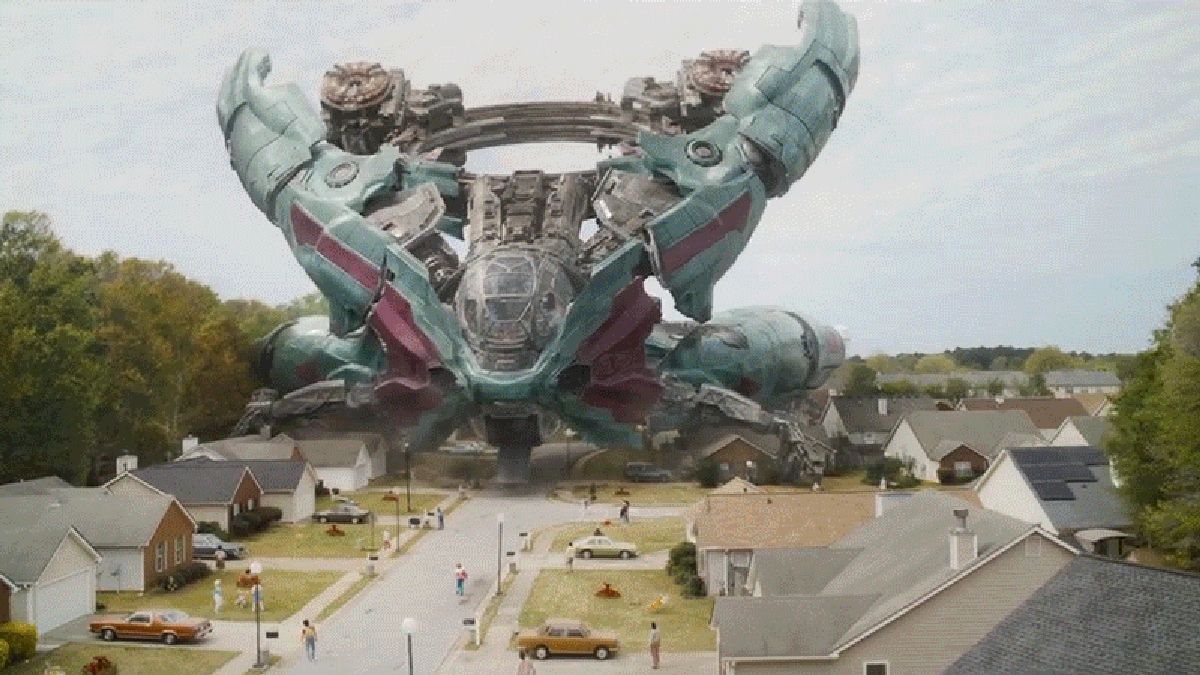
However, the High Evolutionary is not an artist. He is not even much of a scientist. In flashbacks, it is revealed that he was unable to figure out how to evolve these animals into civilized denizens of his alternate world; the initial process of accelerated evolution drove them insane. It’s ultimately Rocket who solves the problem, demonstrating the necessary insight and imagination to realize a dream that existed just beyond the High Evolutionary’s grasp. Rocket is the one who conjures it into being.
There is a sense in which Gunn might relate to this. “Rocket is me, he really is, even if that sounds narcissistic,” Gunn told Deadline in May 2019, discussing the saddest thing about being fired from Vol. 3. In March 2023, he explained to Total Film, “The reason I came back, and decided to do this movie, was because I really felt like Rocket’s story needed to be told.” Rocket’s story is important to Gunn, and so it’s fascinating how Vol. 3 frames that story.
In broad terms, the relationship between Rocket and the High Evolutionary is similar to various troubled parent-child dynamics in Guardians of the Galaxy, Guardians of the Galaxy Vol. 2, The Suicide Squad, and Peacemaker. The High Evolutionary is another abusive father, like Thanos, Ego (Kurt Russell), or Auggie Smith (Robert Patrick). However, the dynamic in Guardians of the Galaxy Vol. 3 is explicitly framed in terms of creativity and intellectual property.
When Guardians of the Galaxy was first announced, much of the press coverage was skeptical. It seemed like a difficult project. These characters had no standing in popular culture, and the Marvel Cinematic Universe hadn’t attempted anything like this before. Some critics even predicted that the film could be the studio’s first flop. However, with Gunn’s guidance, the film became a critical and commercial smash. It was the highest-grossing film of 2014 at the domestic box office.
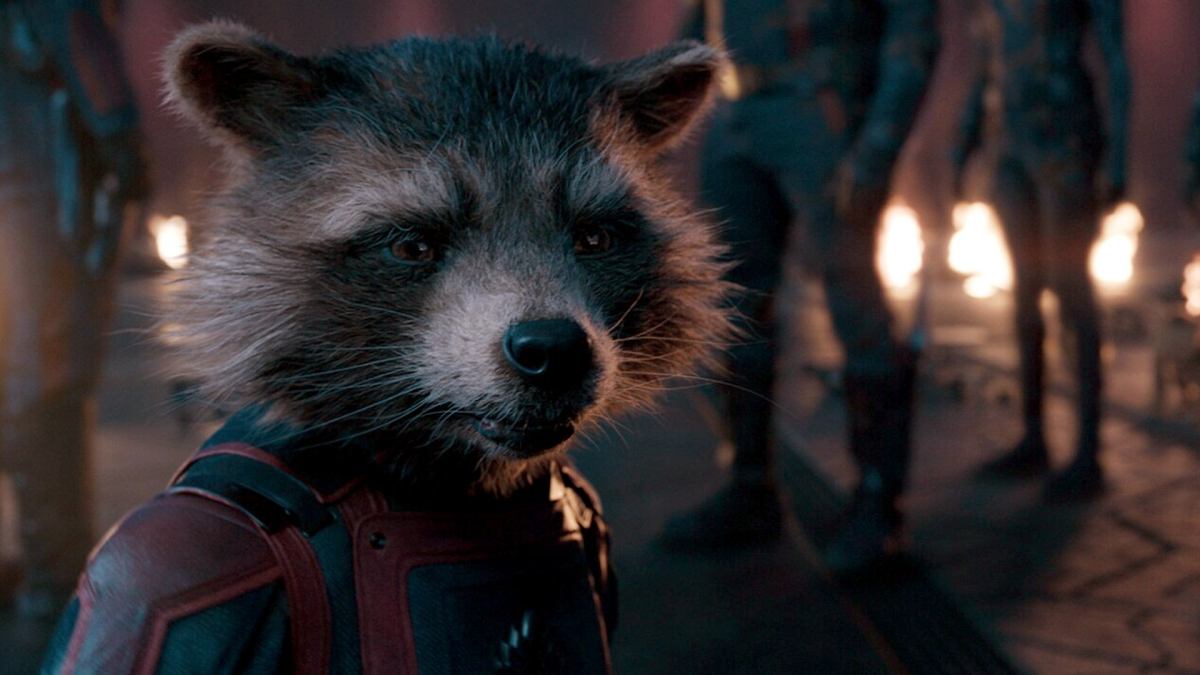
Gunn was the secret ingredient. Gunn imbued the film with a distinct personality and perspective, giving the characters depth and complexity. Like Rocket tinkering with the High Evolutionary’s technology, Gunn managed to sneak a surprisingly esoteric and distinct project through the studio’s assembly line. However, if Gunn was Rocket, then perhaps Disney was the High Evolutionary. After all, the High Evolutionary doesn’t thank Rocket for the help. Instead, he resents his creation.
Marvel Studios has a complicated relationship with its creatives. Around the time that Gunn was working on Guardians of the Galaxy, Marvel parted ways with Patty Jenkins on Thor: The Dark World and Edgar Wright on Ant-Man. The studio would also engage in a tug of war with director Joss Whedon during the production of Avengers: Age of Ultron. Ava DuVernay turned down the chance to direct Black Panther because she felt that the studio would ask for compromises she couldn’t make.
Following Guardians of the Galaxy Vol. 2, there was a gentle sense of conflict between Gunn and the studio over authorship of the Guardians. When the characters appeared in Infinity War and Endgame, Gunn tweaked the dialogue and chose the soundtrack, but he didn’t get to make major creative decisions. In press for Vol. 3, Gunn has discussed how the characters were used in Infinity War, diplomatically confessing, “They did some things that I wouldn’t have wanted.”
Gunn is specifically referencing Peter’s lashing out at Thanos in Infinity War. However, it’s hard to watch the Guardians in Infinity War and Endgame without wondering how they affected Gunn’s long-term character plans. Gamora’s arc is a prime example; her death in Infinity War would seem to completely undermine anything that Gunn might want to do with her in subsequent films. It wipes out any character development and resets her back to factory settings.
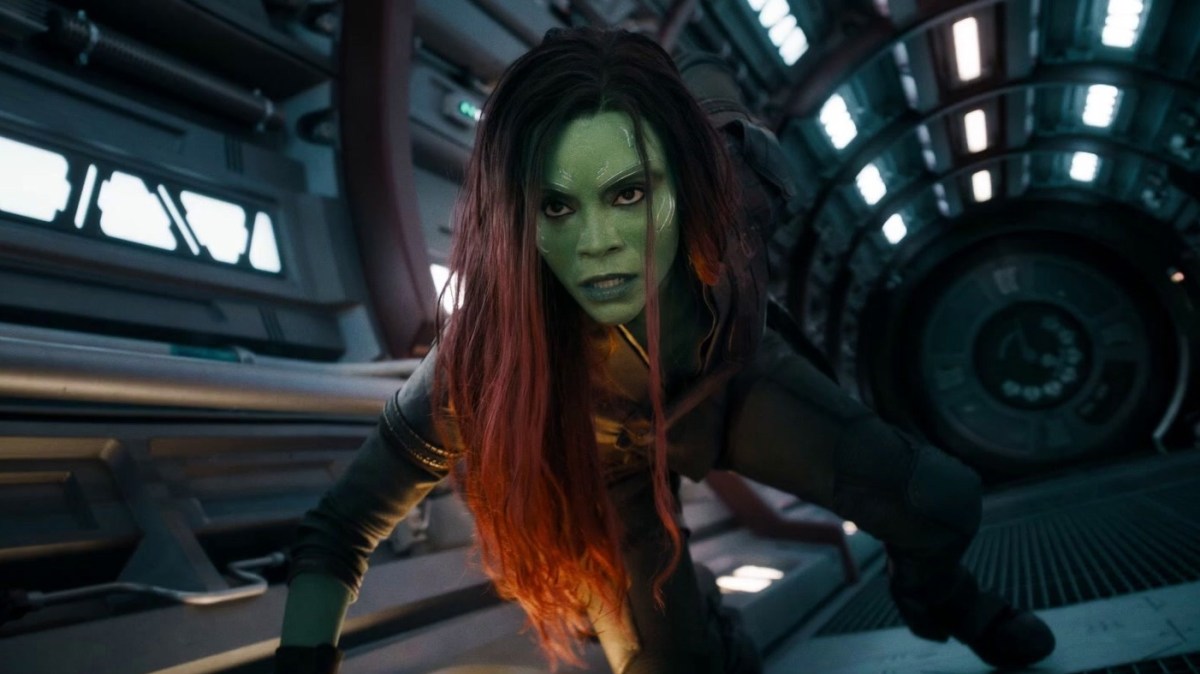
However, it also breaks Peter’s arc. In Guardians of the Galaxy, Peter is defined by his refusal to return to Earth. As such, it is an anti-climax for him to casually hang around Earth at the finale of Endgame. Sure, it makes sense for him to be involved in the big action sequence, but he is also hanging around New Asgard in the movie’s extended epilogue. This may explain why Vol. 3 doesn’t make a bigger deal of Peter’s decision to go back to Earth, treating it as one subplot among many rather than as the driving force of the narrative.
There is a sense that the cast felt the same way. According to Gunn, both Chris Pratt and Pom Klementieff reached out to him from the set of Infinity War, struggling with direction from other filmmakers. “I can’t imagine playing Mantis with someone else writing the words,” Klementieff explained. “I was being given directions, and I was like, ‘I think I’m going to call James.’” It’s clear the cast’s relationship to Gunn is separate from their relationship to Marvel and that they protect each other. When Gunn was fired, the cast rallied to him.
This skepticism of the studio deepened when Gunn was fired. Pratt acknowledged some frustration with the studio’s cynical plan to shoot Gunn’s script without allowing him to direct. “I was like, ‘Oh, so we can use the script written by James Gunn, but we just can’t have him direct?’” recalls Pratt. There were rumors that the studio wanted Taika Waititi to take over the project, although Waititi made it clear he wasn’t going to do that: “For me, those are James (Gunn)’s films.” Waititi would go on to have a small role in Gunn’s The Suicide Squad.
At least some of this tension plays out in Guardians of the Galaxy Vol. 3. Much like Marvel Studios plucks indie directors out of relative obscurity and gives them blockbuster budgets, the High Evolutionary chose to elevate Rocket from a simple raccoon. Much like Marvel Studios seems willing to discard those directors at the first sign of trouble, the High Evolutionary condemns Rocket for his flaws and imperfections. The High Evolutionary seeks to exploit Rocket’s imagination and take all the credit. “I made you!” he screams in frustration, like a power-crazed producer.
James Gunn took $250 million from Disney to make a film that is about trying to assert humanity within the framework of a soulless intellectual property farm. In its own way, it’s as radical a blockbuster as The Matrix Resurrections or Alien: Covenant. As Marvel Studios is coming under increased criticism for its assembly line mode of production, Gunn used the studio’s resources to craft a farewell movie about his struggles against that production process. It’s subversive — and brilliant.
